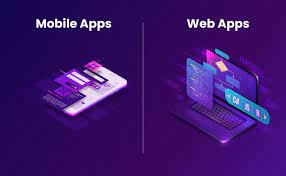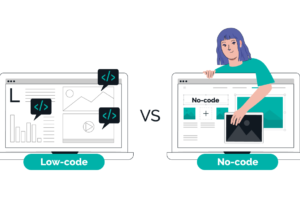In the dynamic landscape of web development, the advent of Progressive Web Applications (PWAs) has revolutionized how users interact with web applications. Progressive Web Application development has become synonymous with innovation, offering a plethora of features that enhance user experience and transform conventional web applications into immersive, responsive, and engaging platforms.
Progressive Web Application development represents a paradigm shift in the way web applications are designed and deployed. Unlike traditional web applications, PWAs leverage modern web capabilities to deliver a native app-like experience across different devices and platforms. These applications are built using web technologies such as HTML, CSS, and JavaScript, augmented with service workers, manifest files, and other progressive enhancement techniques.
One of the key features driving the innovation in Progressive Web Application development is offline functionality. PWAs utilize service workers to cache essential assets and data, allowing users to access content even in offline or low-connectivity scenarios. This offline capability not only improves user accessibility but also enhances performance and reliability, making PWAs an ideal choice for users in diverse environments.
Another innovative feature transforming web applications is push notifications. PWAs leverage push notification APIs to deliver timely and relevant updates to users, even when the application is not actively running. This feature enhances user engagement by keeping them informed about important events, promotions, or updates, thus fostering a deeper connection between the application and its users.
Moreover, Progressive Web Applications excel in responsiveness and adaptability. By utilizing responsive design principles and flexible layouts, PWAs seamlessly adjust to different screen sizes and orientations, providing a consistent and intuitive user experience across desktops, smartphones, tablets, and other devices. This adaptability ensures that users can interact with the application effortlessly, regardless of the device they are using.
In addition to responsiveness, PWAs offer seamless installation and discoverability. Unlike traditional native applications that require users to visit an app store for installation, PWAs can be installed directly from the web browser, eliminating friction and streamlining the installation process. Furthermore, PWAs can be indexed by search engines, allowing users to discover and access them through organic search results, significantly expanding their reach and visibility.
Progressive Web Application development also embraces the concept of progressive enhancement, wherein applications are designed to deliver a baseline experience to all users while progressively enhancing the experience for users with modern browsers or capabilities. This approach ensures that PWAs are accessible to a wide range of users, including those with older devices or limited network connectivity, without compromising on functionality or performance.
Furthermore, advancements in user interface (UI) and user experience (UX) design are playing a crucial role in transforming web applications. From micro-interactions and animations to intuitive navigation and personalized experiences, developers are leveraging innovative UI/UX design principles to create web applications that are not only visually stunning but also highly functional and user-friendly. By focusing on delivering seamless and intuitive experiences, developers can enhance user satisfaction and drive engagement with their web applications.
Additionally, the rise of artificial intelligence (AI) and machine learning (ML) is reshaping the landscape of web application development. By integrating AI-powered features such as chatbots, recommendation engines, and predictive analytics, developers can create web applications that deliver personalized and intelligent experiences to users. Whether it’s providing personalized product recommendations or automating customer support interactions, AI-driven web applications are revolutionizing how users interact with digital platforms, offering a level of customization and convenience that was previously unimaginable.
In conclusion, Progressive Web Application development is driving innovation in web applications by introducing a host of features that enhance user experience, performance, and accessibility. From offline functionality and push notifications to responsiveness and seamless installation, PWAs offer a compelling alternative to traditional web and native applications, empowering developers to unleash their creativity and deliver immersive digital experiences to users across the globe.







